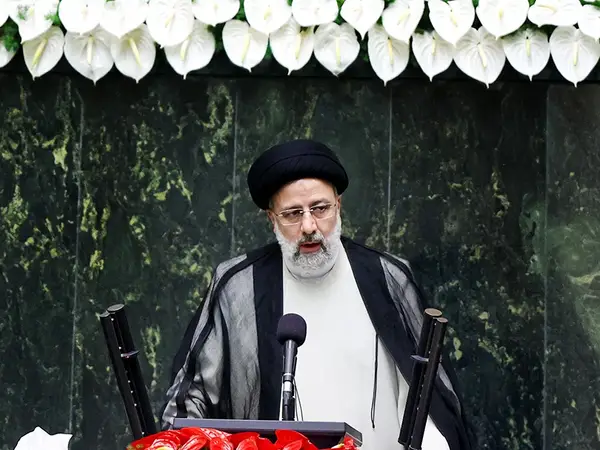Four months after President Ebrahim Raisi took office, most of his critics come from the like-minded conservative camp rather than from his political rivals.
Some of the harshest comments about the new administration's failures and disappointing performance come from hardliner conservatives such as former lawmakers Ahmad Tavakoli, Mohammad Javad Bahonar and current lawmaker Elias Naderan. Tavakoli and Naderan are both economists and their comments bring Raisi's economic policy under attack.
According to reformist daily Sharq, Tavakoli's criticism of Raisi for choosing "problematic individuals" for his cabinet and the superstitious myths his supporters are spreading about Raisi's supernatural capabilities have met with criticism within the conservative camp.
Tavakoli, a well-known advocate of campaigning against corruption, wrote in a recent letter to Raisi that his policy about allocating preferential rate of exchange for purchasing essential commodities for the nation, follows "a wrong policy dictated by the International Monetary Fund that has brought about bankruptcy for several Iranian governments" since the late 1980s "when Iran began to experience inflation rates higher than 49.5 percent."
Meanwhile, members of the parliament say that Elias Naderan, the Chairman of one of the Iranian Parliament's budget committees made serious charges against the administration during a joint meeting of the administration and the parliament last week. His recent comment has not been made public yet, but he said two months ago that "The economy is the Achilles heel of the Raisi administration. It is good that he has so many economists in the cabinet, but what is more important is creating some kind of coordination among them."He called on Raisi to say clearly who is in charge of the country's economy.
Naderan said that the administration appears to be trying to circumvent the parliament in drawing the budget bill and stressed that this will bring about a new wave of inflation.
Meanwhile, high-profile conservative politician and former deputy speaker of the Majles for several years, Bahonarhas said in a pointed statement, "We do not expect Raisi to solve all the problems before the end of the Iranian year in March, but at least we like to hear that he has started to reform the economy in a way that would encourage investors and entrepreneurs to become active."He also suggested that Raisi should hand over dealing with ad-hoc emergencies to others and instead focus on more essential problems."
It is not just the Raisi administration that is the target of attacks and questions by like-minded politicians. The Majles has also been criticized for more or less the same kind of shortcomings. The last time Naderan asked the Majles about its inaction, it was when Naderan asked lawmakers why the Majles has had no visible output in the area of offering solutions for the country's problems after longer than a year since the Majles election.
Naderan also warned lawmakers against likening Raisi to puritan saints and popular politicians of the early 1980s. "These are exaggerations and unnecessary pleasantry aimed to secure a place for those lawmakers in the government," he said, adding that sycophants are not doing a service to Raisi, nor they are doing a good thing for the society.
Speaking about sycophants, Bahonar has also said recently that what they do is harmful to the government because they create unjustified expectations among the nation.
Meanwhile, Principlist activist Hassan Kanani Moqaddam said on Saturday that Raisi should seriously investigate the cases of nepotism and giving jobs to officials' family members and be accountable for these cases before the conservative camp and the nation. If he fails to do that, he is going to lose the society's trust in him, Kanani Moqaddam said.
